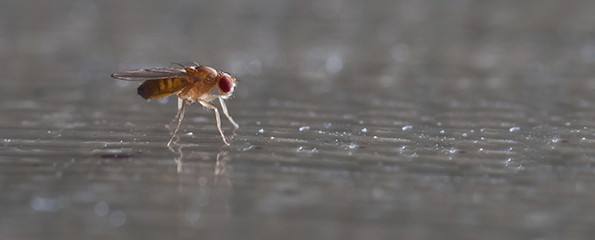Autism researchers eye fruit fly
La Trobe University researchers are studying the behaviour of fruit flies in an effort to unlock the genetics associated with Autism Spectrum Disorder (ASD), a disability affecting more than 1% of Australians.
Researchers from the Olga Tennison Autism Research Centre, and the areas of psychology, genetics and zoology, are working together to explore characteristics of ASD, having been brought together within the Understanding Disease Research Focus Area.
La Trobe University lecturer of genetics, Dr Greg Somers,said his research was using genetically modified fruit flies to narrow the list of genetic indicators likely to be associated with sleep disorders and social interaction patterns common in those with ASD.
‘To do this we are blocking specific genes in the brains of fruit flies to gain a better understanding of these particular behaviours,’ Dr Somers said.
Dr Somers said the genetic basis of ASD was extremely complex, with more than 400 human genes associated with ASD, of which the fruit fly had about 100.
If we know a specific gene is impaired … the ability to identify the behaviours associated with ASD increases quickly.
‘From there we have identified 16 genes of interest, which we are now examining one by one as we now have the ability to remove the function of single genes from fruit flies,’ Dr Somers said.
‘Once a single gene has been removed from a fly we study its behaviour for about a week to see if there are difficulties with sleep and how they behave socially.’
Dr Somers said studying the specific genes would enable an understanding of their role in ASD.
‘If we know a specific gene is impaired in someone, the ability to identify the behaviours associated with ASD increases quickly,’ Dr Somers said.
Once the research on fruit fly genetics was completed, Dr Somers said similar research would be conducted on mice to ensure the same results occurred.
‘Should the results translate to mice from fruit flies, it could then be applied to a clinical setting where people are diagnosed,’ Dr Somers said.
Dr Somers emphasised that the research was not creating ASD in flies.
‘This research studies specific behaviours associated with ASD to allow a greater understanding of the genetic components involved and hopefully help with better diagnosis,’ Dr Somers said.
Dr Somers said with the development of recent technologies it was possible in the future that defective genes would be able to be edited, which could lead to the treatment of ASD.
‘Having a better understanding of these specific genes will make this technology all the more powerful once it is fully developed,’ Dr Somers said.
(Source: La Trobe University)
Dates
Tags
Created by:

 Login
Login














